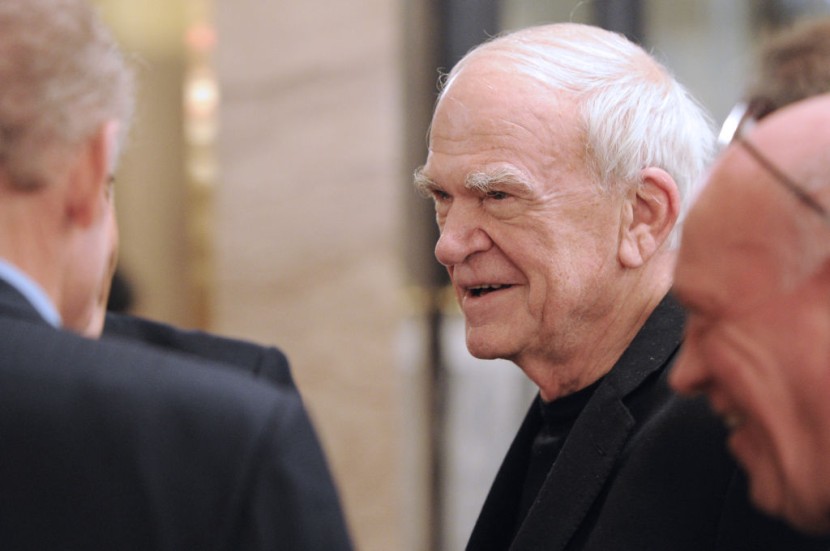
Czech media reported the exiled Czech writer Milan Kundera died in his Paris apartment Wednesday (July 12) at the age of 94. He was famous for being a dissident in communist Czechoslovakia during the Cold War through his novels like "The Joke" and The Book of Laughter and Forgetting, which transformed him into an exiled satirist of totalitarianism, as well as being the author of the book "The Unbearable Lightness of Being."
The Moravian Library in Brno, which houses Kundera's personal collection, also confirmed his death. "It is a great loss," said the library's spokesperson Anna Mrazova.
"Milan Kundera was a writer who reached whole generations of readers across all continents and achieved global fame," Czech Prime Minister Petr Fiala said. "He leaves behind not only notable fiction but also significant essay work."
Czech by Birth, French by Choice
Kundera was born in 1929 and lived in Prague until 1975, giving him extensive knowledge of communist propaganda at his place of birth. Weaving together themes of love and exile, politics and the deeply personal, Kundera's novel won critical acclaim, earning him a wide readership among Westerners who embraced both his anti-Soviet subversion and the eroticism threaded through many of his works.
By 1975, he relocated to Paris and was eventually naturalized as a French citizen after he was stripped of Czechoslovak citizenship.
Even though the Czechs ousted the communists from power, he remained in Paris until his death, only returning to the modern Czech Republic on rare and undisclosed occasions after the fall of the Iron Curtain. It was only in 2019 that Kundera was made a citizen of the Czech Republic.
His final works were written in French and never translated into Czech.
Fame From Abroad
Kundera's most famous work, "The Unbearable Lightness of Being" won him such acclaim that it was made into a film in 1988.
However, it was not published in the Czech Republic until 2006, 17 years after the Velvet Revolution. Nevertheless, copies of the book where were made available in Czech since 1985 after a fellow countryman founded a publishing house in exile in Canada.
The book topped the bestseller list for weeks, and in 1986, Kundera won the State Award for Literature for it.
Novelist Philip Roth also championed his work in the United States, the Washington Post added.
"The Unbearable Lightness of Being" follows a dissident surgeon from Prague who was living in exile in Geneva before returning home later in the story.
For his refusal to adhere to the communist regime, the surgeon was forced to become a window washer and used his new profession to arrange sex with hundreds of female clients. He ultimately lived out his final days in the countryside with his wife, with their lives becoming more dreamlike and more tangible as the days passed.
Reluctance to Fame
Jiri Srstka, Kundera's Czech literary agent at the time the book was finally published in the Czech Republic, said the author himself delayed its release there for fears it would be badly edited.
"Kundera had to read the entire book again, rewrite sections, make additions, and edit the entire text," Siska told Radio Praha at the time. "So given his perfectionism, this was a long-term job, but now readers will get the book that Milan Kundera thinks should exist."
In addition, Kundera was fiercely protective of his private life. He only gave a handful of interviews and kept his biographical information to a bare minimum.
The only time he was forced to revisit the past was when the Czech Institute for the Study of Totalitarian Regimes produced documentation in 2008 indicating that in 1950, as a 21-year-old student, Kundera told police about someone and his dormitory. The man was ultimately convicted of espionage and sentenced to hard labor for 22 years.
The researcher who released the report, Adam Hradilek, defended it as the product of extensive research on Kundera. "He has sworn his Czech friends to silence, so not even they are willing to speak to journalists about who Milan Kundera is and was," he said at the time.
In response, Kundera said the report in which Hradilek was involved was a lie, telling Czech news agency CTK it amounted to "the assassination of an author."








